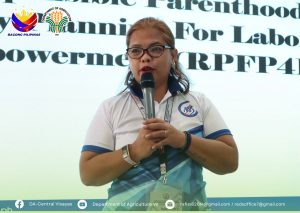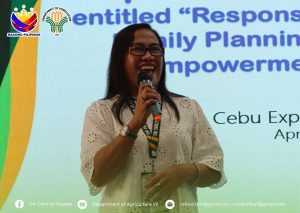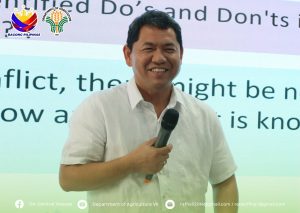The Department of Agriculture-Central Visayas (DA7) conducted a reproductive health talk on Responsible Parenthood and Family Planning for Labor Force Empowerment (RPFP4LFE) today, April 28, 2025, at CES Conference Room, DA7, Maguikay, Mandaue City.
In her welcome message, DA7 Gender and Development Focal Person, Maribel Martinez, expressed her gratitude to the participants for their attendance and to the Commission on Population and Development – Region VII for facilitating the training.
Some 40 employees of DA7, including single, married, and solo-parent staff participated during the activity.
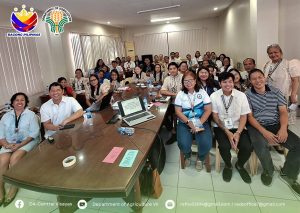
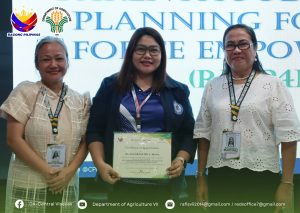
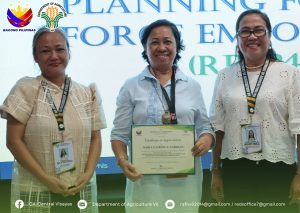
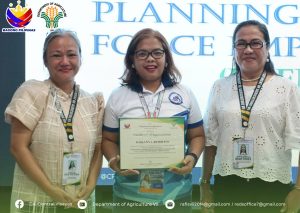
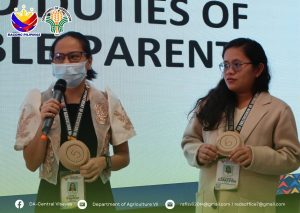
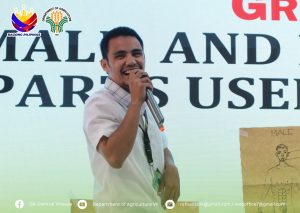
Cheryl Dela Victoria, Alternate GAD Focal Person, emphasized that the activity is part of DA7’s Gender and Development (GAD) organizational focus activity. She explained that the initiative will help empowers the staff and the institution, as the agency workforce are now mostly in their reproductive stage, of which the orientation will lead to an increased productivity.
Jo-ann Francinse V. Maga, one of the resource speakers, shared the primary objectives of the training, such as to raise employee awareness and understanding of responsible parenthood and family planning methods, and to improve the over-all employees well-being
DA7 Regional Technical Director for Operations, Engr. Cirilo Namoc, in his message, emphasized the importance of open communication. According to him, no one is perfect, and through open communication in the family, conflicts and challenges can be effectively resolved.
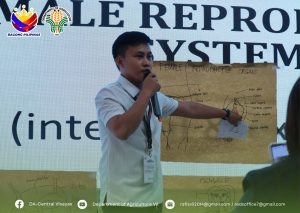
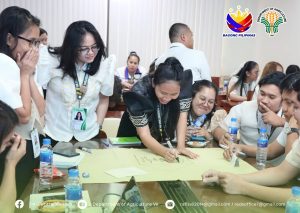
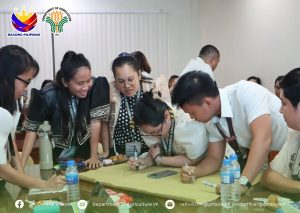
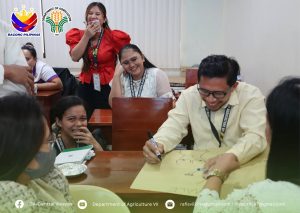
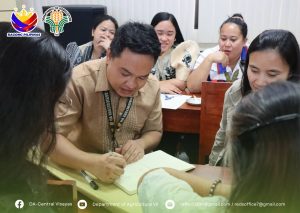
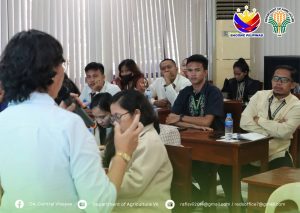
CPD Assistant Regional Director, Darlynn S. Remolino, provided insights on the legal foundation for the training, referencing Presidential Decree No. 965, which established the framework for responsible parenthood and family planning. She also introduced the Commission on Population and Development’s Pre-Marriage Orientation and Counseling Program, designed to assist couples with fertility challenges, family size planning, and fertility intentions.
In addition, she shared various factors that influence marriage expectations. She stressed that understanding these differences is key to building strong, lasting relationships.
Participants participated during workshops where they were divided into four groups. Each group engaged in activities such as: Illustrating their vision of an ideal family, reflecting on their roles as responsible parents through an “I Believe” segment, sharing their happiest and saddest childhood memories, and discussing ways to manage the home, including budgeting strategies.
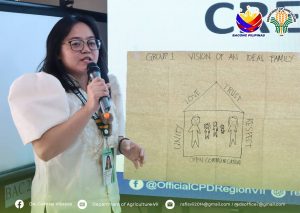
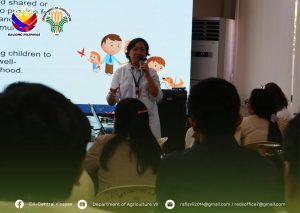
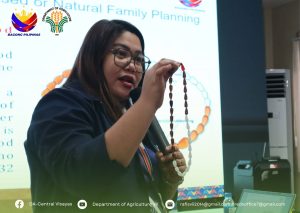
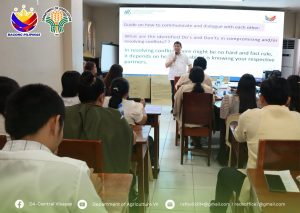
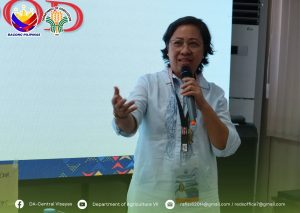
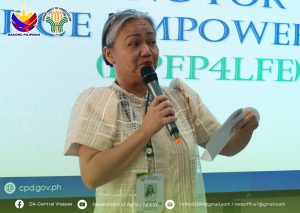
Maria Lourdes Garillos, Population Program Officer III at the CPD, also shared key insights on responsible parenthood. According to Garillos, parenting is a lifelong commitment, and effective communication is essential for maintaining a healthy parent-child relationship.
She discussed various parenting styles, such as authoritarian, permissive, neglectful/uninvolved, and authoritative, emphasizing the importance of understanding the responsibilities that come with parenthood.
